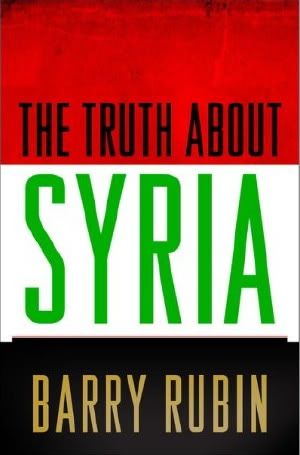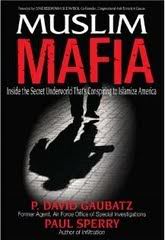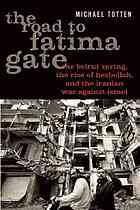Iran's President Mahmoud Ahmadinejad will visit Turkey for two days, Sunday and Monday November 8 and 9, 2009. Ahmadinejad is expected to take part in theOrganization of the Islamic Conference economic summit in Istanbul.
Ties between the two populous nations have strengthened in recent months. In late October 2009, Turkish Prime Minister Recep Tayyip Erdogan went to Iran on an official trip, boosting bilateral ties between the two countries. Referring to Ahmadinejad, Erdogan said: "There is no doubt he is our friend." Erdogan defended Iran's nuclear program and declared that it is
In September 2009, Ahmadinejad boasted of Iran's excellent relations with Turkey saying: "Our two countries cooperate in the fields of energy, tourism, cultural and international issues." Turkey has in recent years improved its links with Iran, and has sought to help resolve the nuclear standoff between its Western allies and Tehran.
After Ahmadinejad's disputed presidential re-election in June 2009, Erdogan and his ally, Turkish president Abdullah Gul were among the first foreign leaders to make congratulatory phone calls, ignoring the mass protests and concerns of Western leaders over the result's legitimacy. Erdogan justified the move as a "necessity of bilateral relations."
Economic Ties
The existing trade volume between Turkey and Iran is $11 billion. "Iran and Turkey have always seemed to be rivals in the region, but they need to cooperate due to common interests and threats," said Arzu Celalifer Ekinci, an analyst from the International Strategic research Organization (USAK) in Ankara.On October 28, 2009, Erdogan said Turkey and Iran were about to enter serious trade relations. "The initial target for the bilateral trade volume was $20 billion but Iranian Vice President Mohammad Reza Rahimi suggested, 'Why not make it $30 billion', so we raised the target."
Rahimi also proposed the establishment of a joint airline by Iran and Turkey in a bid to streamline bilateral trade. He predicted that the annual trade between the two countries would rise to $30 billion within the next four or five years. Erdogan welcomed the suggestion, saying the two states should double efforts to remove obstacles on the way of border trade, specifically reduce custom charges.
In order to encourage Turkish and Iranian businessmen, new regulations in the fields of banking, customs and insurance will be enacted. An Iranian delegation to move the projects forward will travel to Turkey in the next three months.
Iranian and Turkish authorities agreed to boost ties and conduct bilateral trade in their own currencies. Iran announced that it had already started to use Turkish currency in trade with its neighbor. Turkey has made the relevant legal arrangements. Iran is seeking ways to attract foreign investors to its energy sector to break economic sanctions imposed due to its controversial nuclear weapons development program.
South Pars Gas Field
During Erdogan's visit to Turkey in October, the Prime Minister announced a deal to explore natural gas in Iran's South Pars basin. On October 28, 2009, Turkish Energy Minister Taner Yildiz and Iran's Oil Minister Masoud Mirkazemi signed an agreement on joint exploration and production of natural gas in the South Pars field. The same agreement also confirmed the transportation of Iranian gas to Europe via Turkey and extended an earlier protocol to carry Turkem gas to Turkey via an Iranian route.In July 2007, Turkey signed a memorandum of understanding, allowing TPAO to pump 20 billion cubic meters of natural gas from the South Pars gas field. In support of this agreement, Turkish Prime Minister Recep Tayyip Erdogan said: "We import oil and natural gas. We want to reduce the amount we pay for our imports."
The Nabucco Pipeline
To cement their mutuality of interests in this project, Iran and Turkey countries signed a memorandum of understanding (MoU) on July 14, 2007 related to gas and oil transit and joint energy investments. The pipeline is designed to be 3,500 kilometers (2,200 miles) long, to transport up to 40 billion cubic meters (1.4 trillion cubic feet) of gas annually. The estimated cost of construction is €5 billion, to be borne in equal shares by a consortium of five countries -Austria's OMV AG, Hungary's MOL, Romania's Transgas, Bulgaria's Bulgargaz and Turkey's BOTAS (Turkey's petroleum pipeline corporation). Turkey is pivotal because the pipeline must traverse its territory. Turkey will be a beneficiary in four ways: First, it will secure a supply of natural gas; second, it will collect transit fees; third, it will bargain for preferential prices for the Iranian gas; and fourth, as a leading conduit of gas to Europe, it will enhance its eventual integration into the European Union by earning points for diversifying routes and supplies away from Russia.Turkey wants to see Iranian gas in the Nabucco project. "Iran has a strategic position in the fields of petroleum and gas as a country of consumption, production and transportation," Erdogan said in October 2009. The joint exploration and production will start in the next weeks; Turkey is expected to invest $4 billion to produce 35 billion cubic meters.
Strategic Dimensions
As a historical adversary of Iran, Turkey indeed has managed to steer a remarkable course in foreign policy in recent years, maintaining cordial relations with Tehran even as it remains a key U.S. ally and the only Muslim country with high-profile military cooperation with Iran's arch-rival, Israel.As a Muslim (albeit secular), non-Arab nation, Turkey can advise Tehran with a credibility that the EU-3 (Britain, France, and Germany) could not match when they tried unsuccessfully to convince Tehran to drop its nuclear program. But if diplomatic efforts over Iran's nuclear program continue to falter, Turkey is the only country in Iran's vicinity on which the United States has pre-positioned tactical nuclear weapons that it could deploy against Iranian facilities.
In September 2009, Iranian Foreign Minister Manouchehr Mottaki and his Turkish counterpart Ahmet Davutoglu both called for the expansion of security cooperation between the two countries. In a separate meeting with the Turkish Foreign minister, Majlis Speaker Ali Larijani said Tehran and Ankara "can play constructive roles in regional stability."
Early cooperation between Iran and Turkey was rooted in the Economic Cooperation Organization (ECO) - an intergovernmental regional organization established in 1985 by Iran, Pakistan and Turkey for the purpose of promoting economic, technical and cultural cooperation among the member states. It was the successor organization of what was the Regional Cooperation for Development (RCD), founded in 1962, which ended its activities in 1979 with the advent of Khomeini in Iran.
Historical and Cultural Dimensions
Today's Turkish-Iranian relations are shaped by the historic rivalry between the Ottoman and Persian empires of yore. The Ottoman Empire, from which modern Turkey evolved, controlled all the Central Asian Republics. The mistrust towards Iran among Arabs, Turks and other Muslim nations of the greater Middle East has always been there. During the Ottoman era, Iran and Ottoman Empire couldn't be allies, and couldn't ensure any serious economic or political co-operation. To this day Turkey resents Iran's meddling in the affairs of these nations.Long-standing cultural and religious differences shape the relationship as well. The Turks are mostly Sunni Muslims, but Turkey includes a Shia minority that is widely viewed as "second class".
Iran's state religion is Shiite Islam and most of its people are ethnically Persian, but minorities of various ethnic, religious, and linguistic backgrounds number in the millions, including ethnic Kurds, Baluchis, and the largest ethnic minority, the Azeris. Azeris, comprising a quarter of Iran's population, are ethnically Turkish and their language is a Turkish dialect. Iran and Turkey share a common problem with their Kurdish minorities, although this constitutes more of a problem for Turkey than for Iran. Turkey's stand points are being completely opposite to revolutionary Iran in almost all fields. Turkey has been emerging as a new role model for many Iranians.
While both countries are Muslim, Turkey has had a long tradition of a secular and democratic political system. The changes that took place in Turkey in recent years under the AKP government have not affected its economic policies, which remained free market oriented. By contrast, Iran is a theocratic state with aspirations of regional hegemony and an active supporter of terrorism.
The year 2009 has been designated as "Iran-Turkey Culture Year". Joint cultural activities have been organized in Turkey. Turkish Marmara University and the Iranian Consulate in Istanbul, for example, have arranged an "Iran-Turkey Cultural Relations Conference".











No comments:
Post a Comment